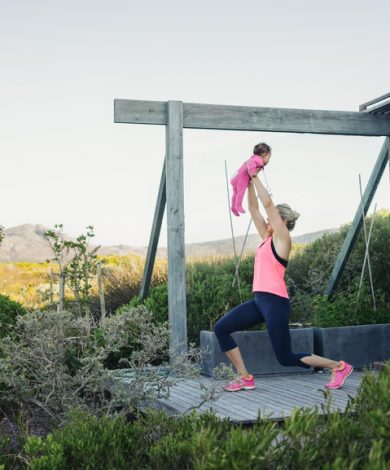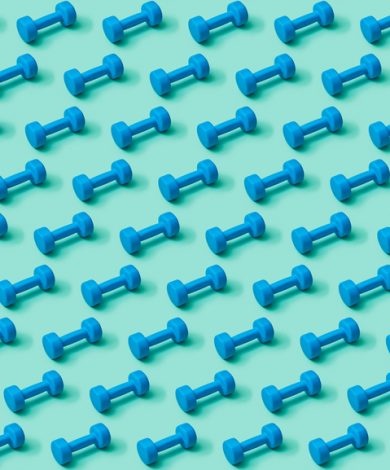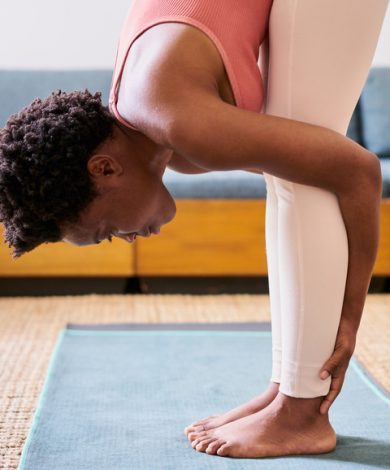Do you know what to do to strengthen your body postpartum? Or are you drowning…
BodyMovementSelf-Care
No Time To Exercise? Here’s A NEAT Alternative
July 4, 2022 • By Sharon Vanin

When you find yourself skipping your workouts more often than not, it can add to your stress because you feel like you should be exercising. Right? If this sounds like you, take a deep breath. Now you can go ahead and cross exercise off your to-do list.
Moving your body on a daily basis is fundamental when it comes to health and wellbeing. And there will be days, weeks, and seasons of life (hello motherhood!) when you don’t have time for full-fledged exercise regularly. Luckily you don’t have to sweat it! Because all your little movements throughout the day add up! All of the movements you do caring for yourself and your baby combine to be an important part of a healthy lifestyle.
Here’s what I want you to know, you don’t need an intense sweat session to meet your daily movement requirement.
Isn’t that NEAT?!
Speaking of NEAT…besides a super fun adjective, it’s also an acronym for a phenomenon called non-exercise activity thermogenesis (“NEAT”) and is the energy that your body uses for all activities other than eating, sleeping, and traditional exercise.
So on a physiological level, all of these additional movements of changing diapers, filling bottles, baby proofing on the go are above what your body’s most basic needs and move you into the NEAT zone meaning it counts as exercise!
How do I get NEAT?
NEAT happens anytime you engage in everyday activity — like all that busy work that never seems to end. Think:
- taking care of your baby
- taking care of your pet
- doing laundry (oh so much laundry!)
- going up and down the stairs
- shopping
- cooking
This stuff is actually doing your body good.
What are the health benefits of NEAT?
Your everyday activities can represent up to half of your daily energy usage. (1) This means that NEAT can help you maintain your health without having to pound it out at the gym. It does this both by burning calories (2) and by playing a role in how your body stores fat. NEAT activates an enzyme called lipoprotein lipase (“LPL”) that influences whether fat is burned as fuel or is stored in the body.
After you eat, levels of LPL are usually higher in fat tissue than in muscle tissue because physical activity tends to wane at that time. This means that your body isn less likely to use fat for fuel after eating. When you’re moving your body throughout the day, levels of LPL become higher in muscle tissue than in fat tissue. This increases your body’s ability to burn fat as fuel rather than store it. (3)
The more you move, the more fat you burn.
Why are we talking about fat loss postpartum? This is not about baby weight or anything like that! This is about how NEAT has been shown to lower your risk of heart disease and early mortality (4). And we like longevity and healthy hearts!
NEAT is great news for busy moms whose hectic lifestyle pulls them in many different directions other than the gym or mat. It’s also great news for those of us who need to and/or want to take our time after childbirth getting back to movement.
If you’re looking to gently explore movement in your postpartum body, this article about how to safely move during the first 6 weeks postpartum and this article about using mindful movement to feel at home again in your body.
Is this about weight loss?
No. To be clear, NEAT is NOT primarily about weight maintenance. If you’re postpartum, which if you’re reading this I assume you are, this isn’t the time to worry about your weight! It’s actually really important to focus on getting enough calories to support your body’s extra demands during this period. Especially if you’re nursing, which typically requires an additional 350-500 calories per day. To learn more about nourishing your body to support lactation, click here or here. And this snack is supportive and delicious! ← Send that recipe to a friend or family member and have them make them for you!
I’m sharing this information about NEAT because I want to help you release any pressure or burden of worrying or feeling guilty about exercise. Or any need to “bounce back” after having a baby. You have enough on your plate! The stress associated with worry and guilt is worse for your health and wellbeing than not engaging in traditional exercise.
Be gentle with yourself.
As long as you move your body in some way everyday — which is easy to do as a busy mom — you’re on the right track 🙂
And remember, taking care of a baby is hard work! Honor your hunger and trust that it’s a sign that your body needs extra nourishment. While it’s true that hunger usually increases in response to increased physical activity, right now your body needs additional energy to heal, adjust to your new family life, and for fundamental things like digestion and detoxification which are essential to keeping you alive and thriving.
It’s refreshing to know that you don’t always need traditional exercise to stay healthy. Your body is using its energy to sustain you as you go about your daily business of being a mom. If you’re feeling overwhelmed, one of the best things you can do is to go with the flow and know that your body is naturally doing its thing to keep you in a state of healthy equilibrium to support your wellbeing and that of your baby.
Isn’t that NEAT?
And if you find you have the time and space to start integrating movement, check out this article for three morning moves or this article for movements to help you regain stability physically and mentally.
References
(1) James A. Levine, “Non-exercise Activity Thermogenesis,” The Proceedings of the Nutrition Society 2003 Aug; 62(3):667-79. doi: 10.1079/PNS2003281
(2) JA Levine, NL Eberhardt and MD Jensen, “Role of Nonexercise Activity Thermogenesis in Resistance to Fat Gain in Humans,”Science 1999 Jan 8; 283(5399):212-4. doi: 10.1126/science.283.5399.212
(3) Lionel Bey and Marc T. Hamilton, “Suppression of Skeletal Muscle Lipoprotein Lipase Activity During Physical Inactivity: A Molecular Reason to Maintain Daily Low-Intensity Activity,” Journal of Physiology 551 Pt.2 (2003): 673-82. doi: 10.1113/jphysiol.2003.045591
(4) Elkin Ekblom-Bak et al., “The Importance of Non-exercise Physical Activity for Cardiovascular Health and Longevity,” British Journal of Sports Medicine 48, no. 3 (2014): 233-38. doi: 10.1136/bjsports-2012-092038



